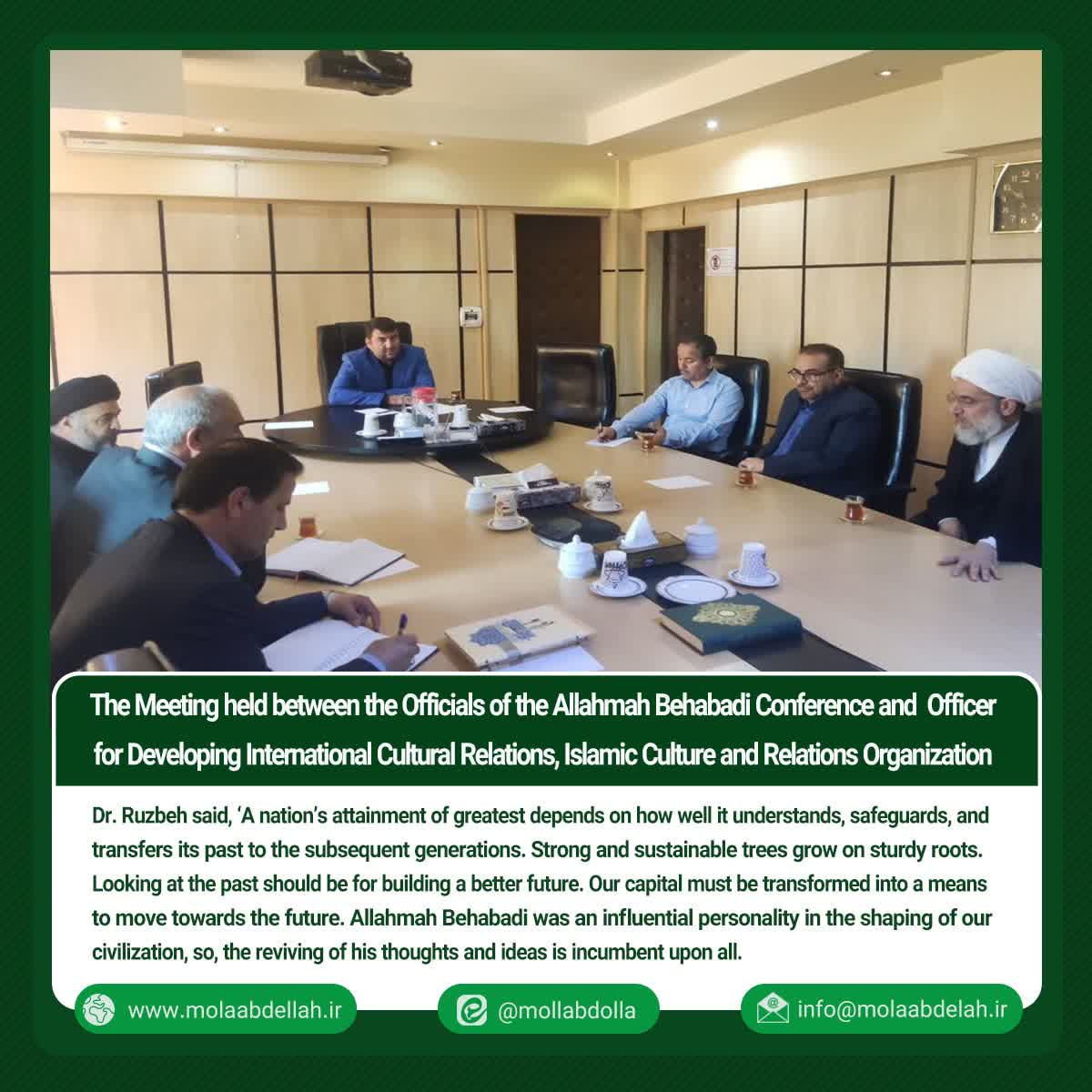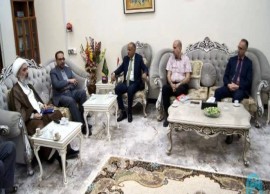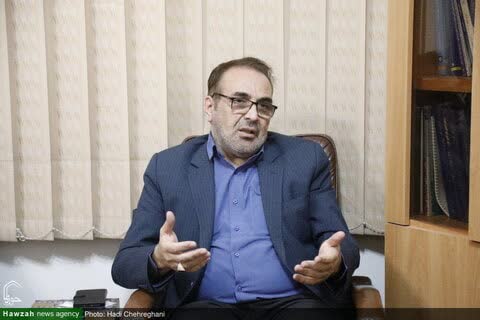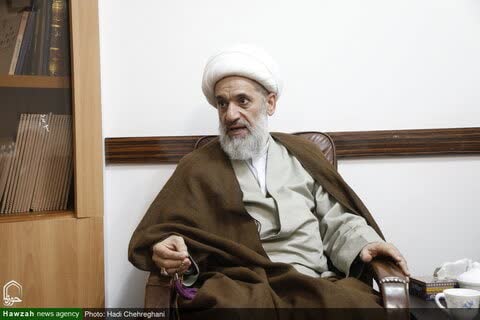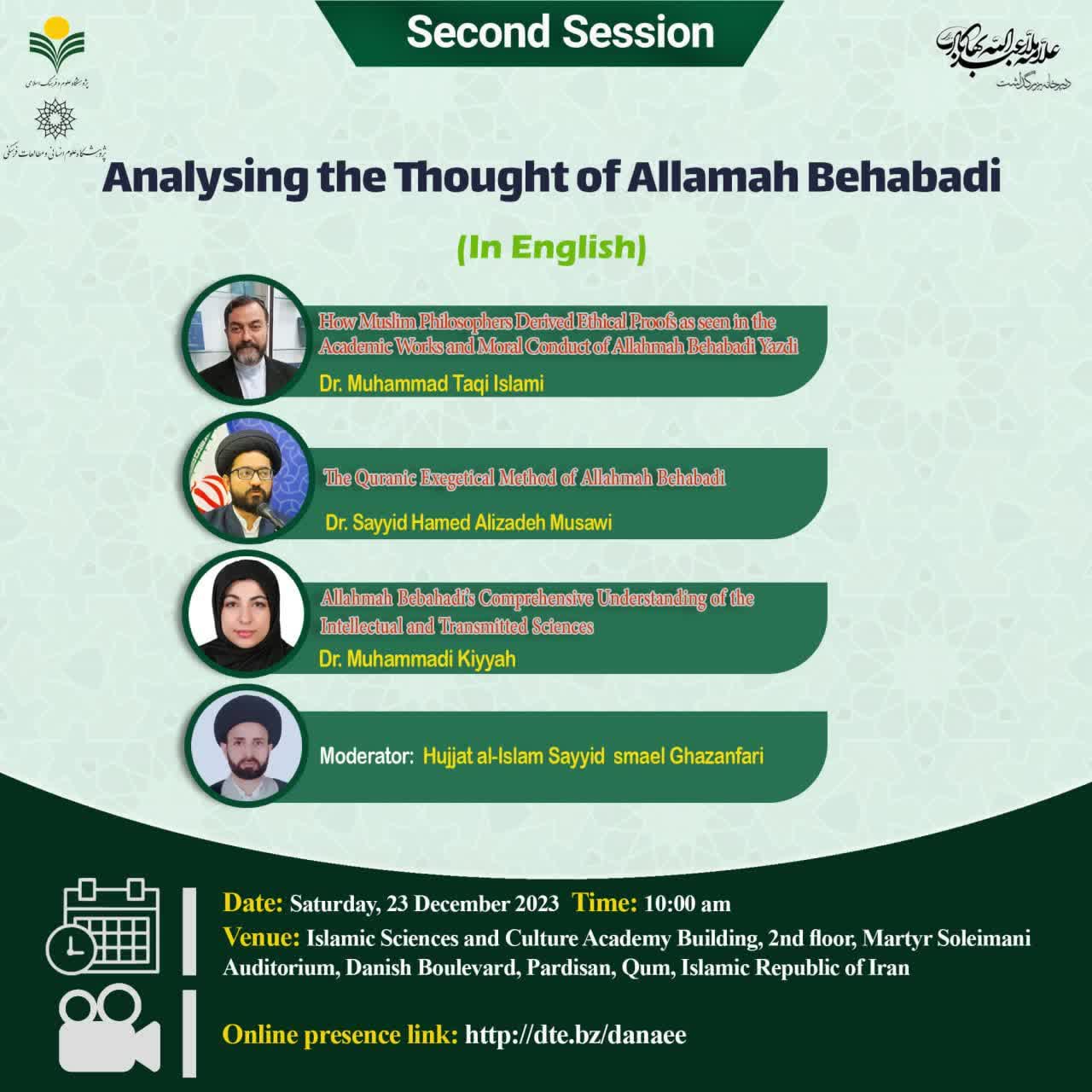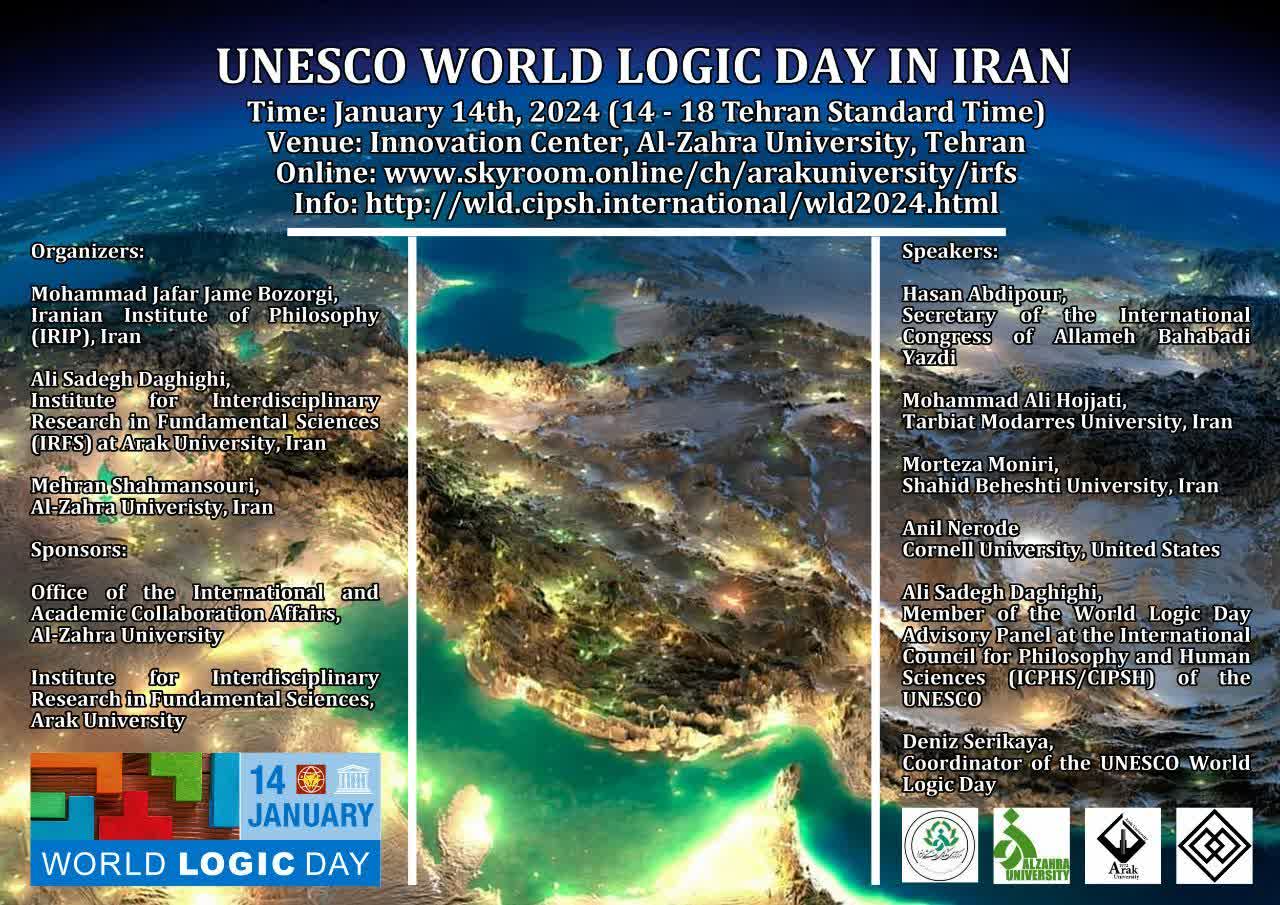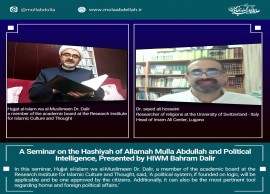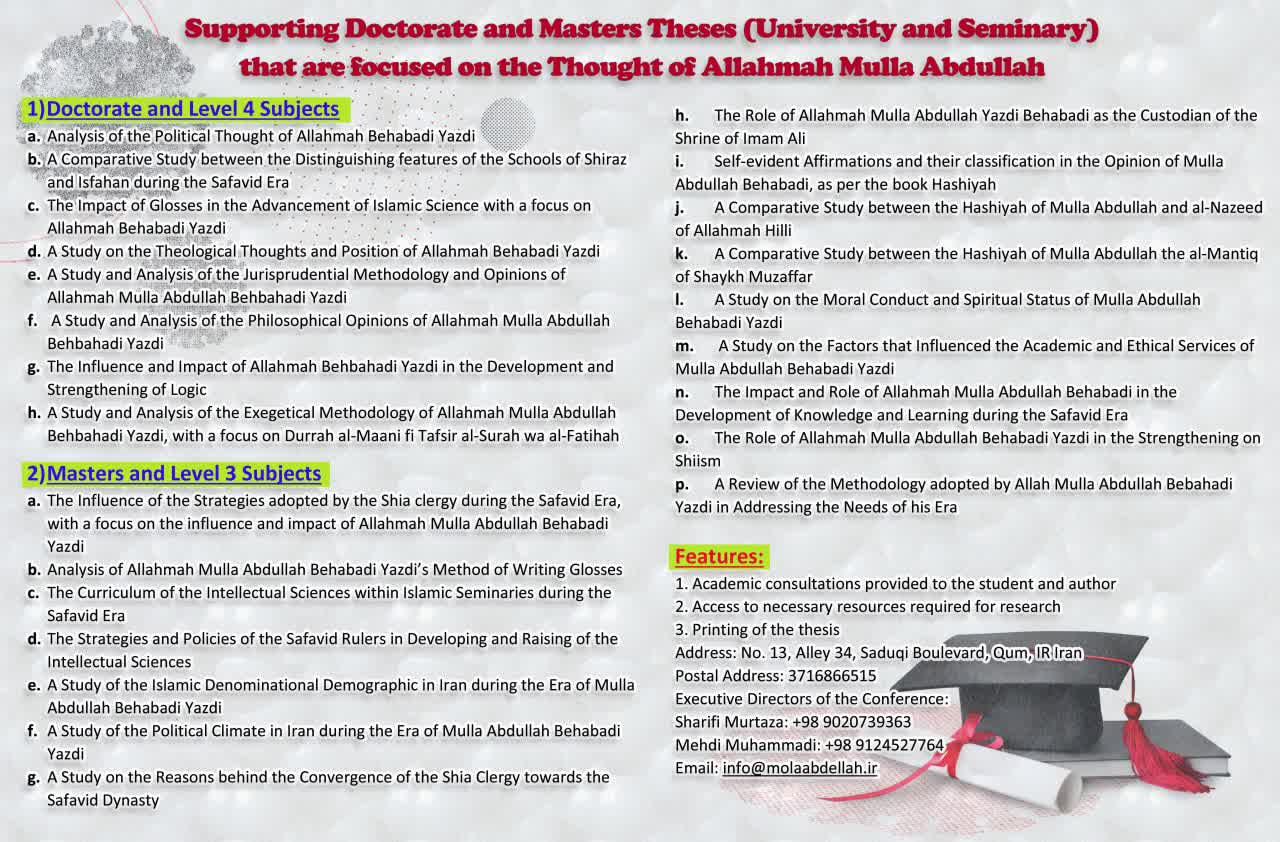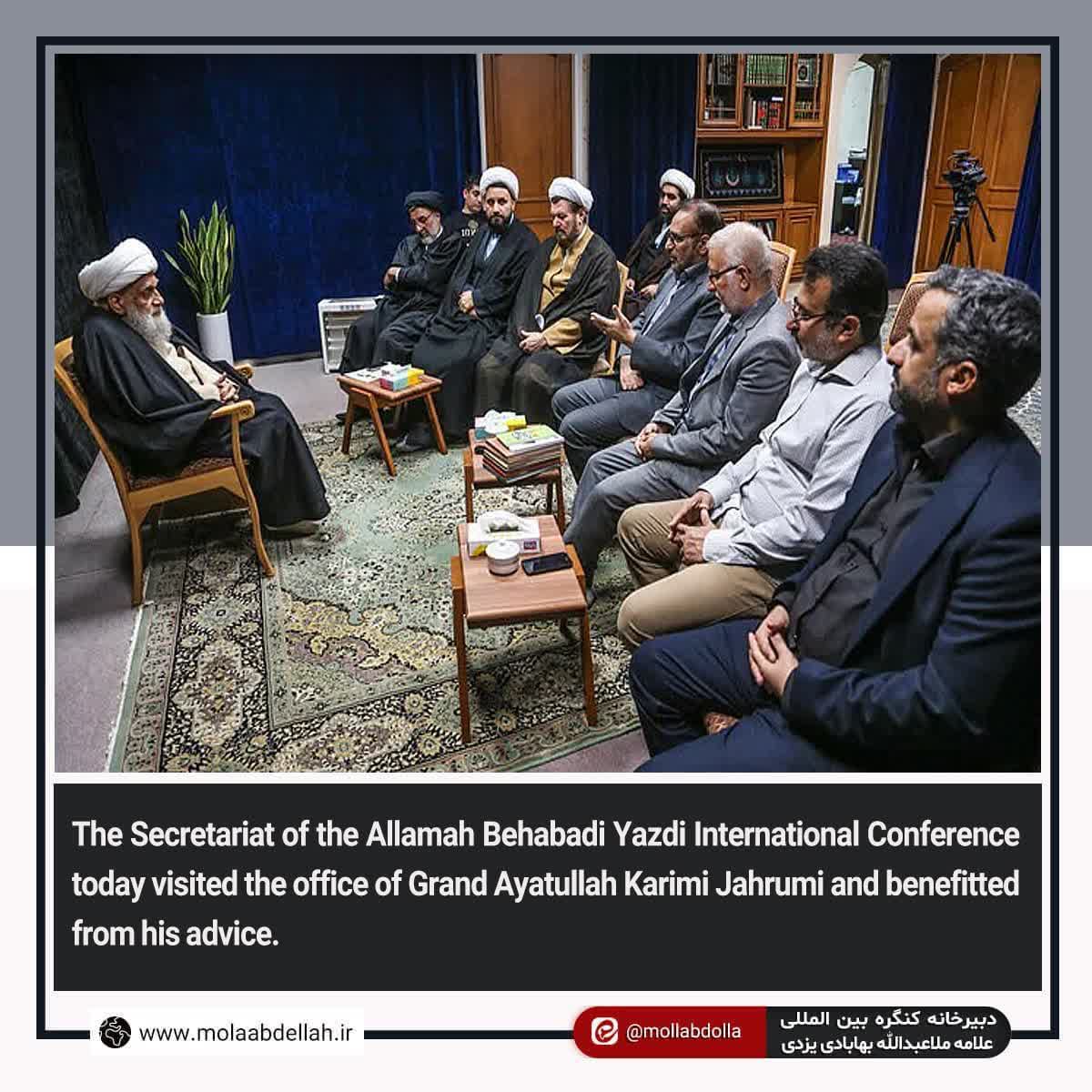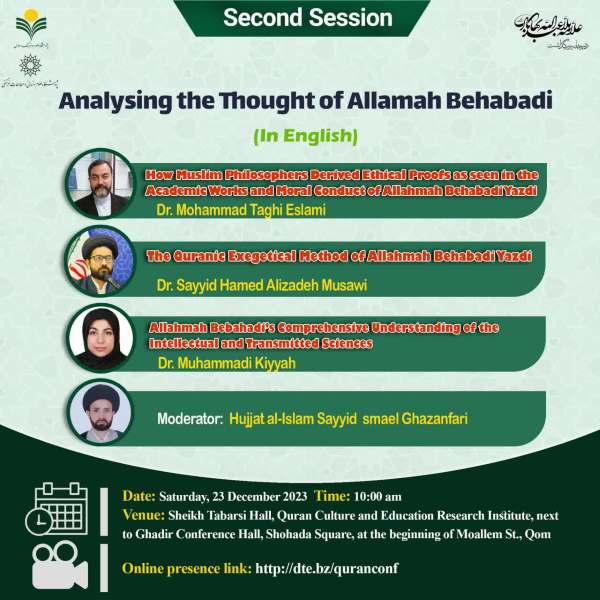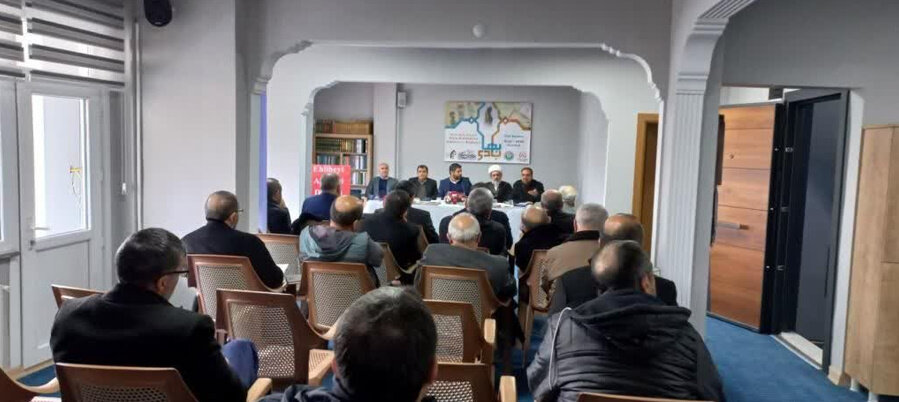in the name of Allah, the compassionate the merciful
The report of the first meeting of the commemoration of Allameh Bahadi Yazdi (RA)
At the beginning of the meeting, while welcoming the audience, the organizers of the meeting were appreciated. In the following, while pointing out the need to pay attention to the position of scholars, it was pointed out the greatness of Allameh Bahabadi's knowledge and the anonymity of his jurisprudence.
Presentation of Dr. Yahya Jahangiri: Allamah Behabadi’s Comprehensiveness to the Intellectual and Transmitted Sciences Behabadi
Allameh Bahabadi's scientific comprehensiveness is important because his method can be used for today's studies. He was an expert in various fields including logic, interpretation, philosophy and jurisprudence. His method was not focused on the text and he also dealt with intellectual matters. Allameh played an important role in establishing an agreement between the two dynasties during the period of transition from Seljuk to Safavid. He also played a significant role in establishing communication between different scientific, political, economic and cultural fields. He also had a good relationship between Sunni and Shiite scholars. Despite Allameh's ability to write books independently, he sometimes interpreted the books of other scholars. The result of the activity of this scholar has been the expansion of the Taqribi approach between different schools of thought. It is interesting to note that Mullah Sadra has also benefited from his views. While paying attention to scientific matters, he has been in charge of the shrine of Amir al-Mu'minin, peace be upon him, on the one hand, and has played an active role in the political issues of the day, on the other hand. He has played the role of a mediator between political groups as well as different scientific views of the day.
Presentation of Dr. Abdulmajid Muballeghi: Shia Rationality in the Safavid era; The Role of the Scholars and the Approach of Mulla Abdullah Behabadi
The Safavids had a great desire to establish a government. On the other hand, due to the prolongation of the greater occultation, the scholars thought of giving the right to a just ruler to establish the government. The Safavids benefited from this theory with the help of the Muhaqqiq Karaki, and gradually this dynasty was able to spread Shiism. But on the other hand, the Ottomans also tried to dominate the Shiite centers and the shrines of the Imams, peace be upon them, and they finally succeeded in doing so.
Allameh played an important role in resolving the conflict between the Ottomans and the Safavids. He tried to keep Najaf out of the battle between these two emperors. He, who was considered the Safavid representative in Najaf, was still the representative of the Holy Shrine after the Ottoman domination of Najaf. This shows his political ability in this period. He tried to maintain Najaf as a center of Shiite learning. Among his services was the improvement of the methodological capacity of Shia traditional scholastic approach. During his time, we see the transfer of Hel Jabal Amel tradition to Najaf-Isfahan tradition. In the meantime, he has played a significant role in the agreement between Usuliyyun and the rationalists. In the field of philosophy, he has detailed explanations on Ibn Sina's philosophy, due to which, logic played a key role in the jurisprudence of a Shiite scholastic tradition. If we consider a pyramid, logic is at the top of the pyramid and for the analysis and interpretation of jurisprudential texts, the middle part is for jurisprudential and legal reasoning, and the lower part is for the defense of religious beliefs. Mulla Abdallah has acted based on the model of this pyramid for jurisprudential studies.


